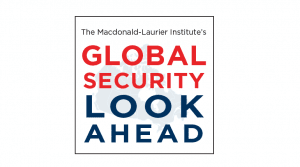 Russia is stepping up its efforts to claim territory in the Arctic that is, thanks to more shipping routes and natural resources, becoming more valuable. Canada will need to balance its diplomatic efforts with more military spending to bolster its own claim, write Aurel Braun and Stephen Blank.
Russia is stepping up its efforts to claim territory in the Arctic that is, thanks to more shipping routes and natural resources, becoming more valuable. Canada will need to balance its diplomatic efforts with more military spending to bolster its own claim, write Aurel Braun and Stephen Blank.
By Aurel Braun and Stephen Blank, Feb. 28, 2017
The Arctic only periodically garners significant attention in Ottawa and abroad. Yet it is vital that Canadians understand the geopolitical context, and set the right policy priorities in this vital strategic region.
Historically, Ottawa has shown a keen interest in the area, even making a claim to extend its maritime boundaries to the North Pole in the 1920s. Canadian concern for sovereignty protection strengthened during the Cold War, when Ottawa claimed Arctic territories and the waters as Canadian internal waters and took symbolic and substantive steps to enforce its claims.
The potential opening of new northern sea routes is bringing other powerful players to the Arctic region – not least China, as the world’s largest exporter and a new observer on the Arctic Council.
In the post-Cold War era, political, economic and legal disputes arose with Arctic littoral states, including Denmark and the U.S. Due to global warming, the Northwest Passage and the Northern Sea Route may have dramatically new navigational possibilities. The discovery of vast potential resources in the Arctic also creates opportunities and temptations.
New strategic considerations are also evident, particularly as Russia assertively pursues ambitious foreign policy goals. Indeed, the potential opening of new northern sea routes is bringing other powerful players to the Arctic region – not least China, as the world’s largest exporter and a new observer on the Arctic Council.
Canada is competing with various states in claiming potential resources in the Arctic, in assuring control or access to navigation routes, and protecting its sovereign territory and Exclusive Economic Zones. While Canada faces multiple claims from other littoral states, all except Russia are NATO allies. The relationship with Russia is very different, and Canada should be alert to possible Arctic risks.
Canada needs to approach four areas with conceptual clarity in dealing with Russia.
First, Russia has the longest Arctic coastline in the world and claims long continental shelves that include the Lomonosov and Mendeleev ridges. Although other countries bordering the Arctic also claim these, the Kremlin assertively contends these ridges belong to them – vast tracts that would give the Kremlin control of more than an additional million square kilometres of seabed.
Second, no other country has as significant a population in the region as Russia. Roughly 9 million Russians live in scores of cities and settlements in the North — a number unmatched by any other Arctic neighbor.
Third, Russia has invested economically far more in the Arctic. About 20 percent of Russia’s GDP and about one-fifth of its exports are generated in this region. And, as noted, the Arctic’s vast energy potential only magnifies this economic significance. Should energy prices rise and the West lift sanctions, Moscow would very likely sharply increase its hydrocarbon extraction efforts in the Arctic.
Canada has diminished its relative military capabilities in the Arctic by closing military bases, failing to adequately invest in Arctic mobility vehicles, and being slow to build heavy icebreakers.
Fourth, Russia has an unmatched and growing military presence in the Arctic. It is where it bases its powerful Northern Fleet, significant numbers of its nuclear ballistic missile submarines, and the world’s most powerful fleet of heavy icebreakers. Further, Russia has recently established an Arctic strategic command and conducted vast Arctic military exercises as it refurbished old bases and opened new ones.
In sharp contrast, Canada has diminished its relative military capabilities in the Arctic by closing military bases, failing to adequately invest in Arctic mobility vehicles, and being slow to build heavy icebreakers.
As the Russian economy has stagnated, the Putin government has had to look elsewhere for legitimization. Foreign military adventures and “glory” created by confrontations with real or imagined external threats has filled the gap. Playing this card is risky, however, and requires ever new adventures and new successes.
Evidence suggests that the Arctic is an issue that Moscow has prioritized as part of this approach. Indeed, Russia is attempting to create an impression of normalcy in the Arctic while it is assertive or aggressive elsewhere, allowing it to persuade other states to delink policy in the Arctic from global concerns. Yet falling prey to that policy is dangerous, not least by creating a false sense of security and possibly emboldening Russia.
It would be wise for Canada to follow a balanced policy: to build the right combination of soft and hard power capacity in the Arctic, and to recognize that weakness only creates temptations for a Russia that is both unstable and opportunistic.
This is an excerpt from a longer commentary prepared for the Macdonald-Laurier Institute’s Global Security Look Ahead series. The views expressed in this article belong to the authors and do not necessarily reflect the editorial policy of Arctic Deeply.




